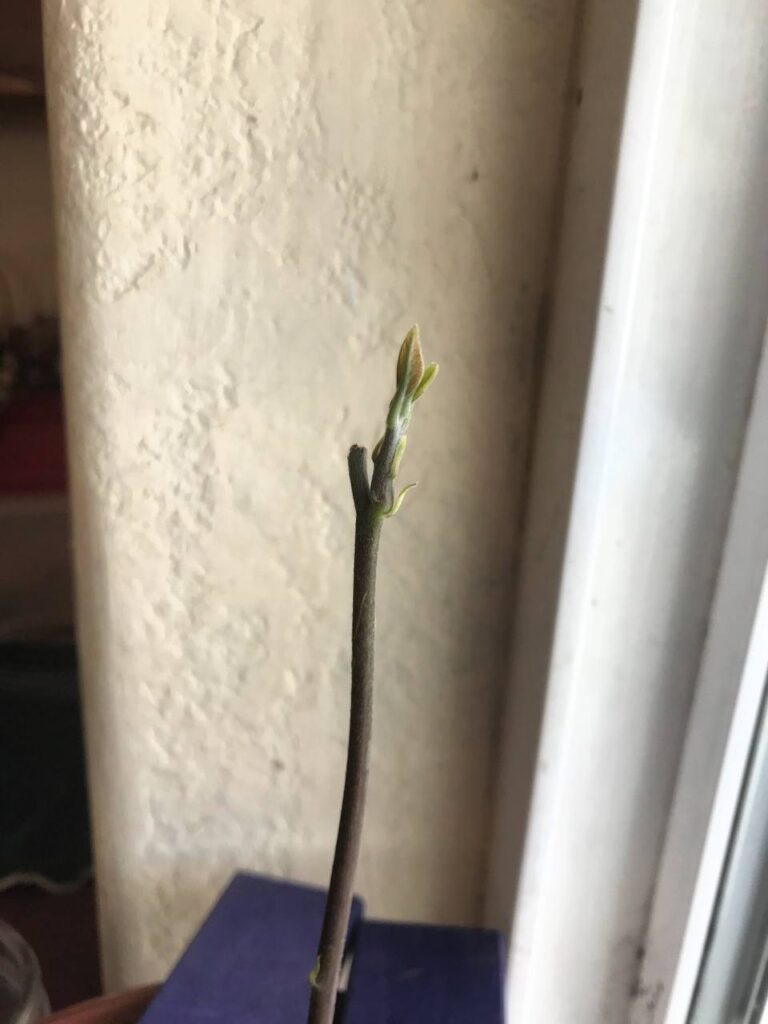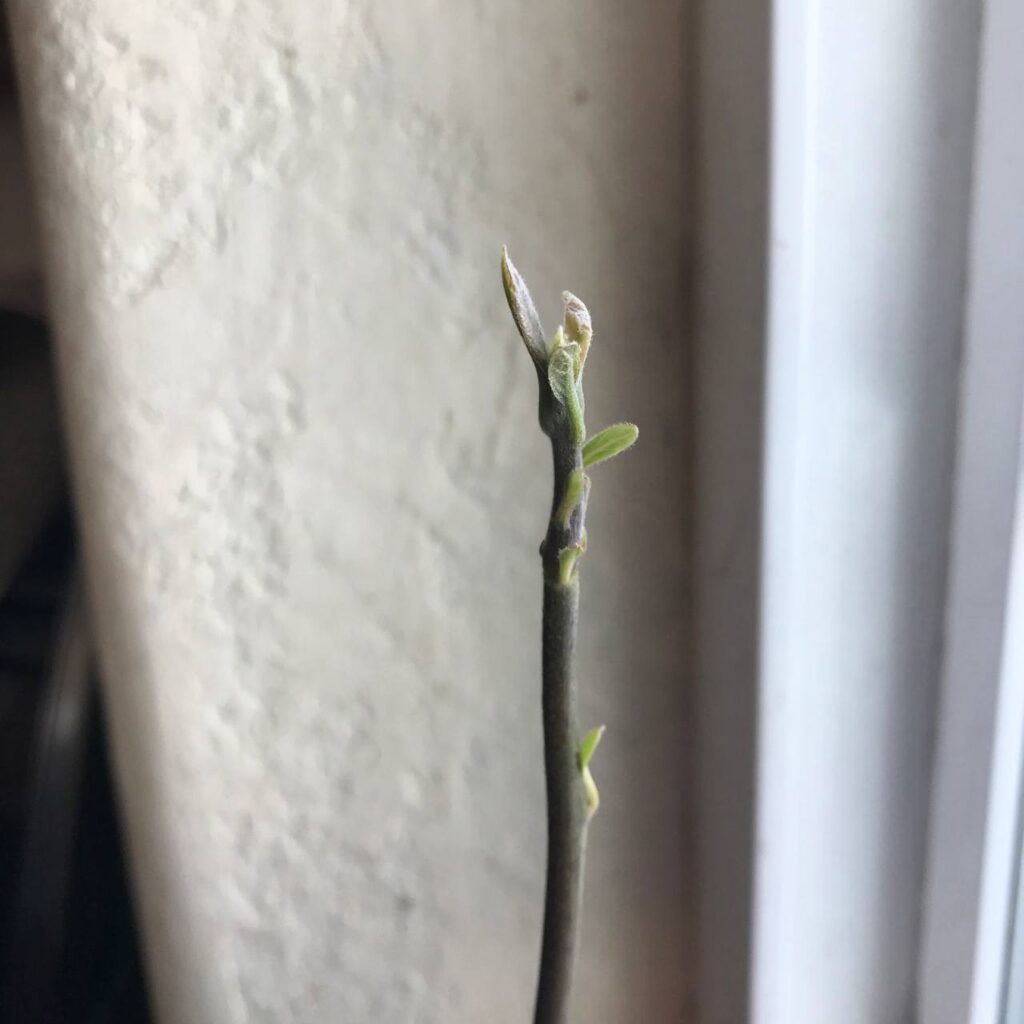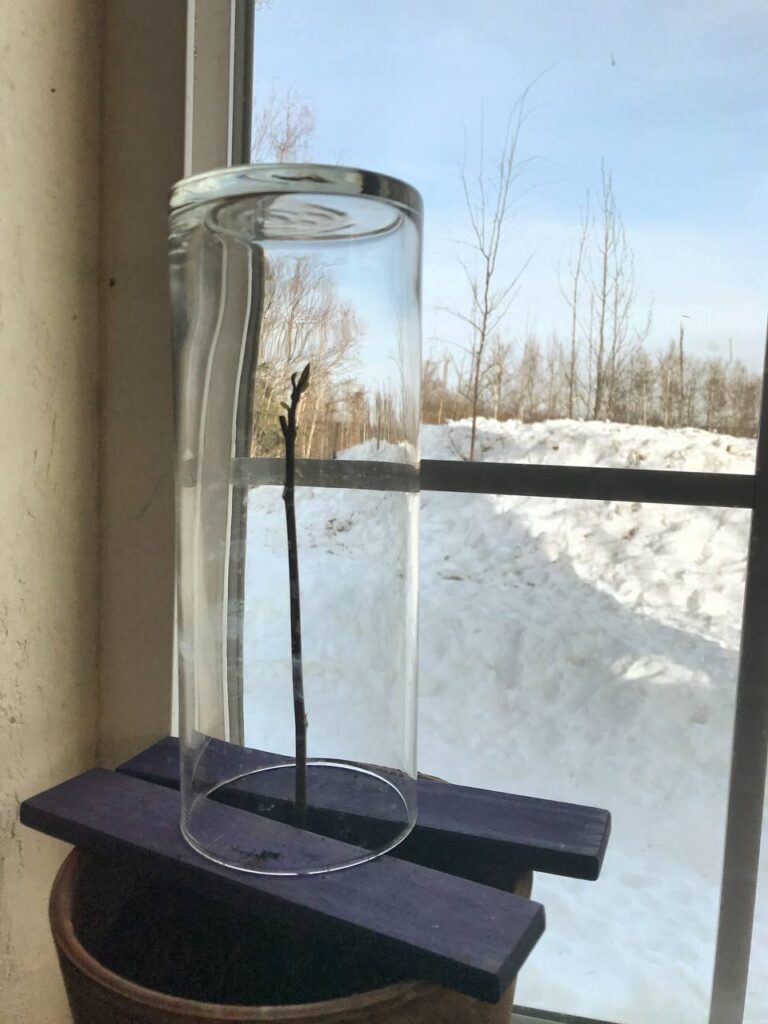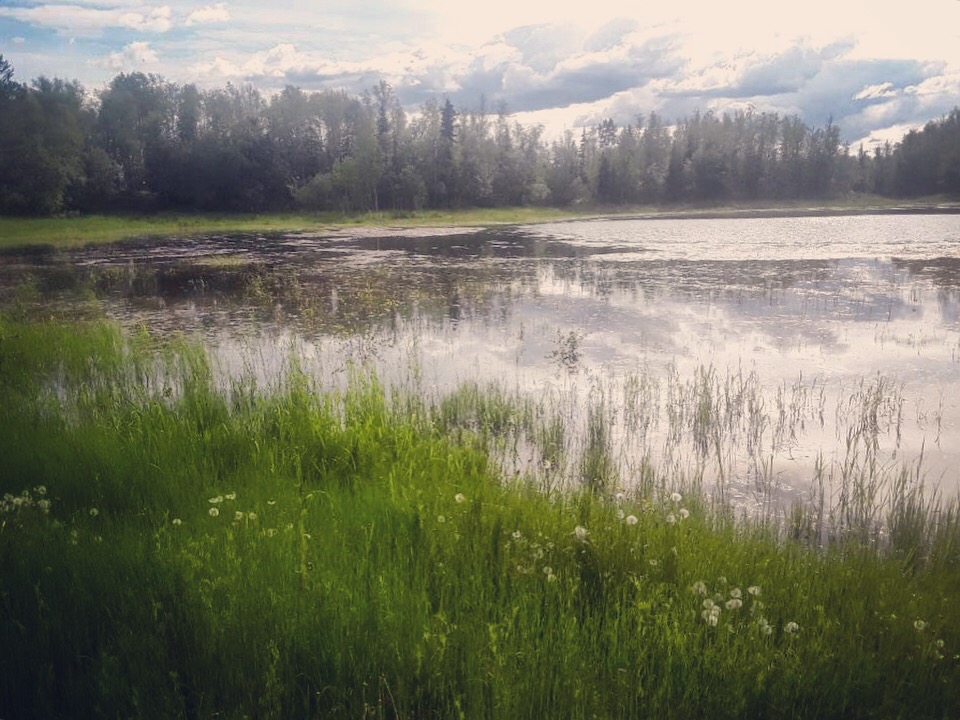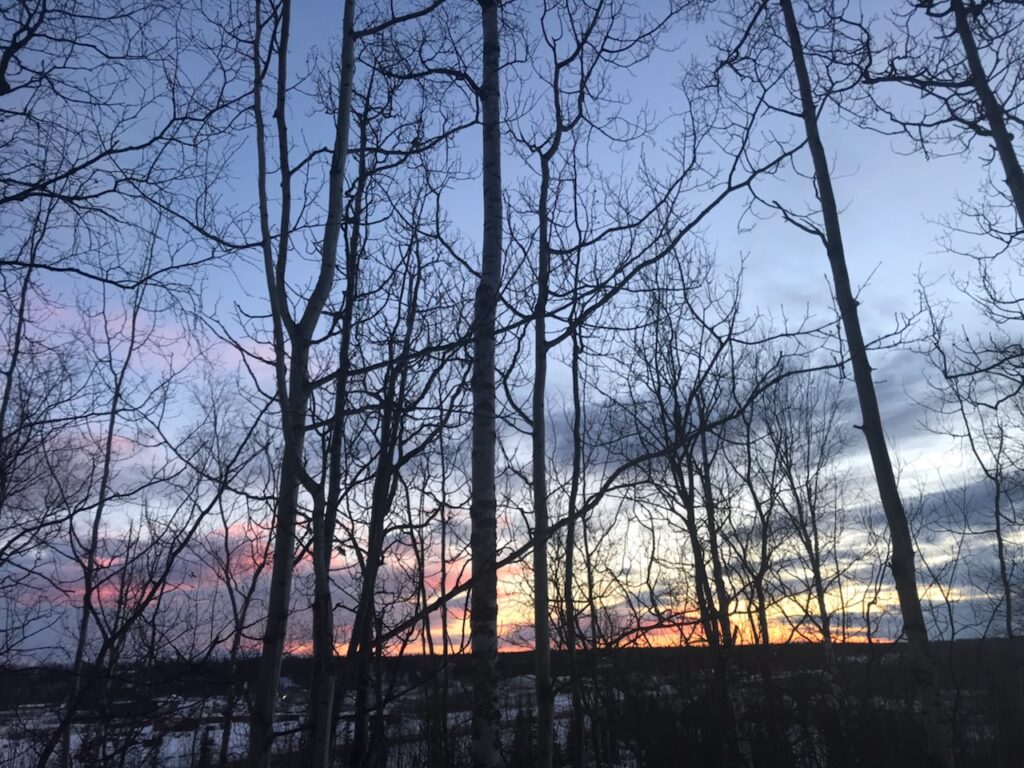It is fully spring: the air is warm, the geese are back, and we put away all the snow gear and broke out the flip flops. Yep, it’s totally spring out there, except…no leaves yet. Not a sprig of new green anywhere. Everything’s still brown, but at least that means the snow has fully, finally receded.
Inside, almost eighty quail eggs are in the incubator in our bathroom, humming along in their little racks, waiting until hatch day in a couple weeks. And in this short, brown space between snow and summer, we’re strategizing fencing and gardening spaces outside: Do we fence the garden, or do we fence the chickens?
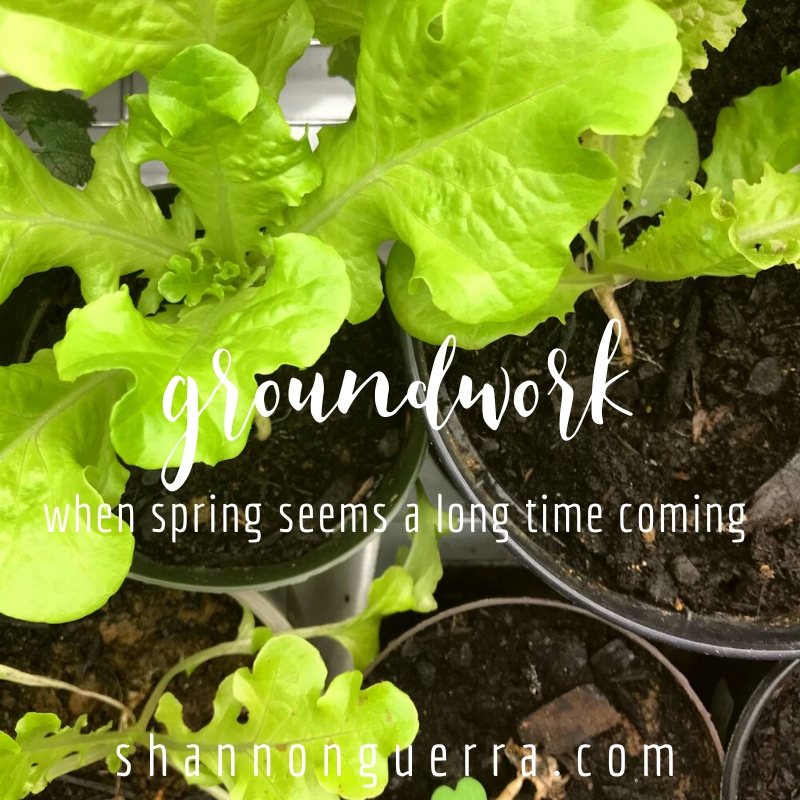
We had decided on the chickens, giving them a couple of paddock spaces to alternate between so they only destroy half the woods at a time while the other half recovers. But then we had a visitor this morning and now we’re rethinking the garden, because Peter Rabbit is back.
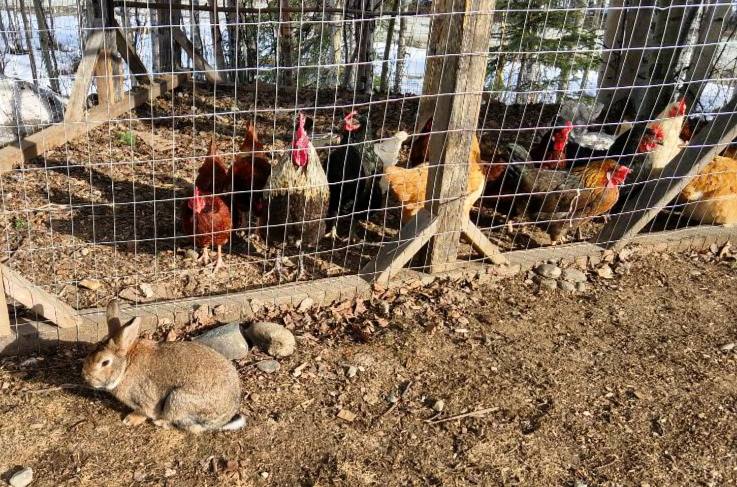
Grrrr. I wonder if we can just fence him…and find him a wife.
But there are other spring things, too. The boys and I planted a bunch of sunflowers and veggies in starter trays, and I’m inquiring about blue, green, and dark brown fertilized eggs so we can hatch those once the quail are done (because, #chickengoals). So yes, it is brown outside but we know other colors are coming, and we’re doing what we can to help them emerge.
Isn’t this what we do? I don’t see progress yet so give me something to do to hurry it along. Waiting is the worst. W-U-R-S-T, worst. We’re waiting for healing or income or favor or direction, and the watched pot is not boiling, the leaves are not unfurling. This season is too long, taking forever, and we have things we want to get to.
Speaking of wanting to see progress in seemingly fruitless endeavors, I’m cleaning off the counter – Legos, Sunday school artwork, the toaster, a bunch of pens and colored pencils. Some headphones. I go round and round this island finding more things that don’t belong here, putting some of them in their right places but most of them in a pile for the boys to put away because it’s all their stuff. SO MANY LEGOS. And books, and magazines, and miscellaneous treasures.
I wipe down the counter. I sit on the couch and finish my coffee. I turn back around to admire the clean kitchen island, and behold, from out of nowhere, a Lego speeder has landed on it.
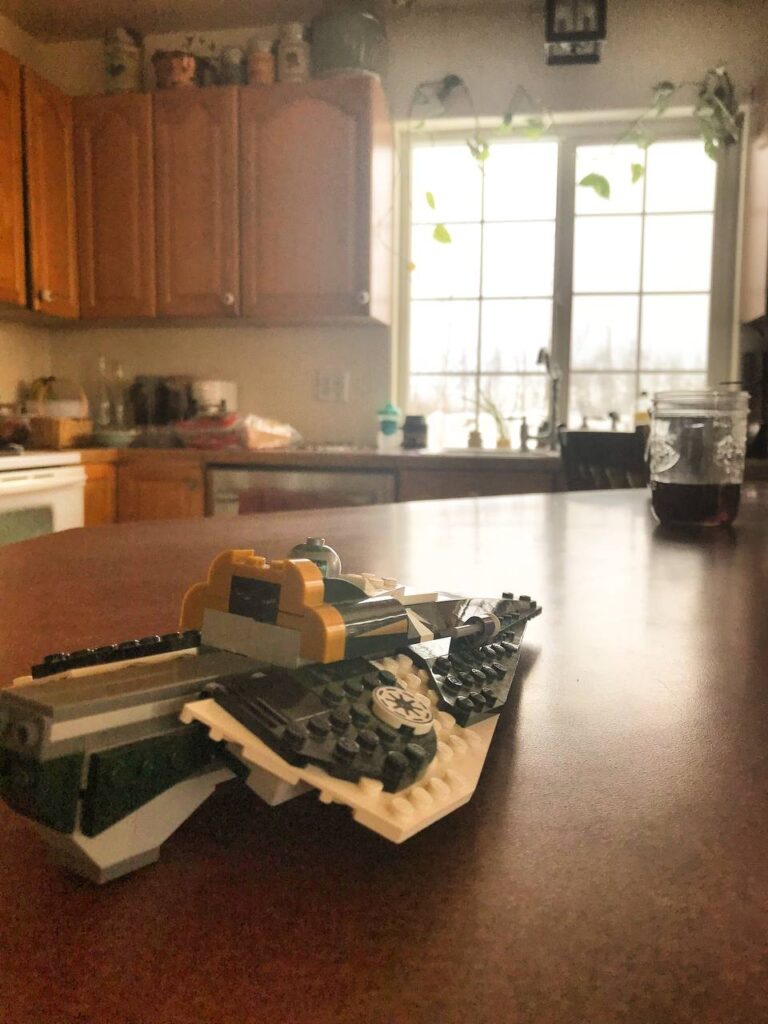
How did that get there? I have no idea. Why did I bother cleaning in the first place?
What is the point? Are we making any progress, or getting anywhere?
It’s odd because we spend all summer and fall preparing for winter – storing supplies, gathering the harvest, making sure we have the essentials for a storm – but then we spend all winter dreaming of spring, and spring has to be prepared for, too. It’s this circle of learning and growing and failing and achieving, and then starting over again.
But we’re not starting all over, back at the beginning, because each time the cycle restarts, our soil is richer. We remember the things we tried last year, and how they fared (or flopped) and those considerations get added in like so much compost.
And that’s good to keep in mind because this afternoon I’m reading to the kids and this is our…(hold on, doing the math…) nineteenth year of homeschool (WHAT) and I’ve been scouring our library again for good books for 3rd and 4th grade. The books aren’t hard to find; we have a houseful of them. The problem is that I have been teaching 3rd and 4th grade to one kiddo for about that many years straight and it doesn’t feel like we’re getting anywhere. We have a similar problem with another kid who’s in her fourth year of second grade math. How many easy readers of great quality can you find, and assign over and over and over, until we’re ready for the next level? How many different second grade workbooks can we go through before the concepts finally stick enough to move on to the next grade? The answer is as long as a piece of string.
I have these two little boys though, and there’s freshness here because all the favorite old stories their siblings have read to tatters over the last nineteen years are new to them: Little House, the McGuffey readers, Paddington Bear. Finn sits next to me reading aloud as I stitch granny squares, and we go round and round and round as he strings the words together.
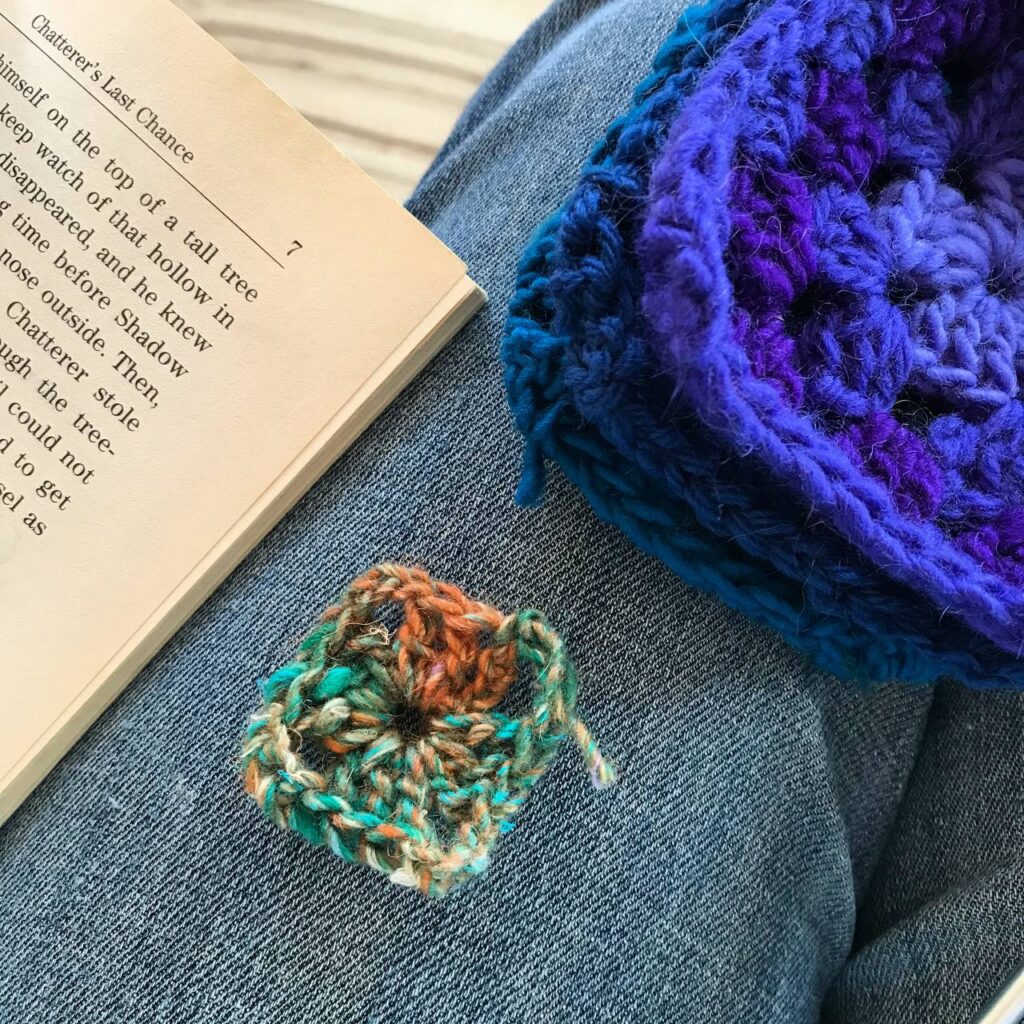
I have been through this book five times already and I know these stories. For almost two decades they’ve been the same words, but the kids reading them are different and I am different, too, sitting here listening to them. I just keep stitching these squares, and they are also the same thing over and over, just variations in color. The stack of squares is slowly accumulating.
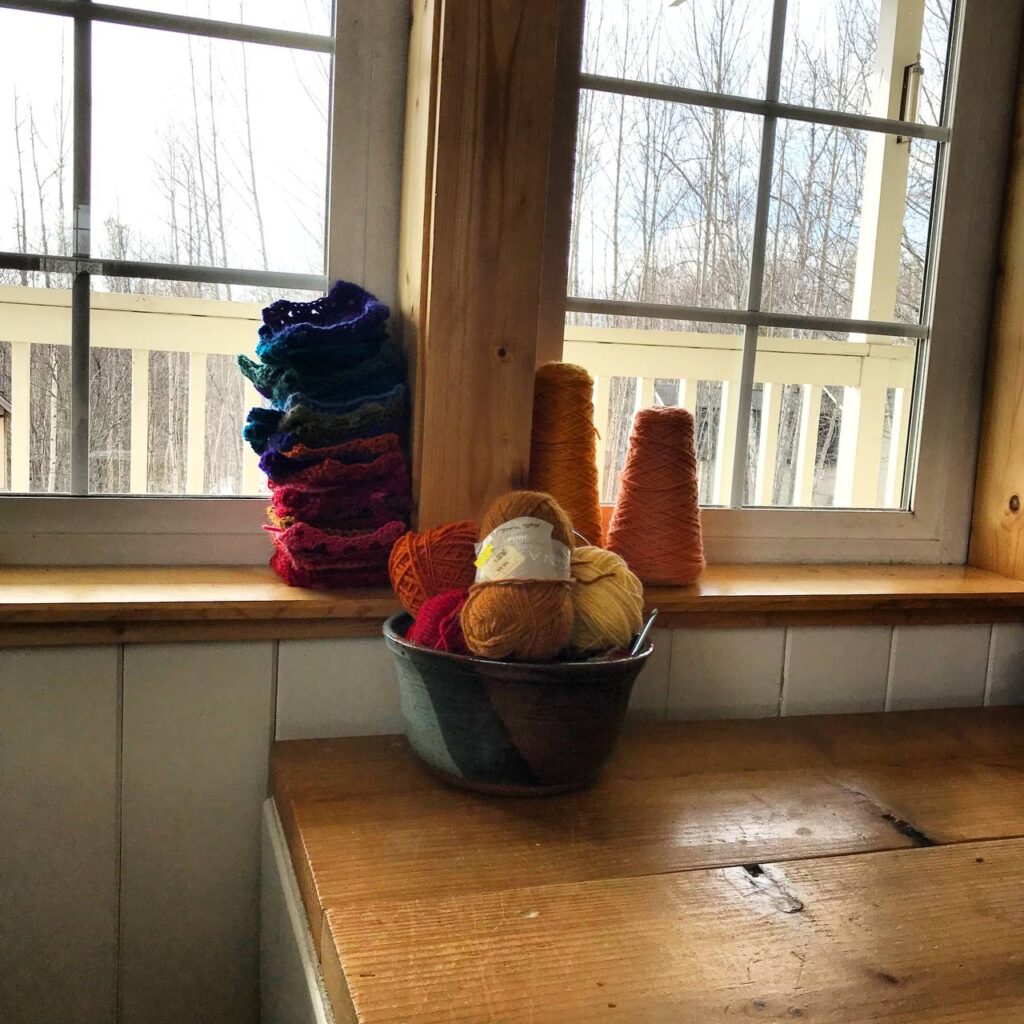
We blame kids for constantly asking “Are we there yet?” but really, this is one of the mantras of adulthood. Are we making any progress when it feels like everything is still brown and bare? Are we doing this right?
Later it’s Reagan’s turn, and I wait for her to read her verse aloud. Her pauses take forever between words because she approaches each one as though it’s brand new, never been seen before, practically in a different language. And it might as well be, even though she’s been through this book twice now. There’s nothing else I can do while she’s plodding through it, because if I turn my attention away, she’s even slower.
Seconds between words. Loooong strings of seconds in this long, long verse that she’s not even halfway through. I hear the boys upstairs playing in their room, and wonder what they’re doing.
Pray for her while you wait, God says. You’re an intercessor, remember? This is what you do.
I have been praying for her for eleven years. I have prayed in circles, round and round, a lot of the same things but with slight variation. I know we’re getting somewhere, I’m just not sure where it is. It reminds me of the citrus trees in my office that I’ve been told may never bear fruit – they’re taller and taller every year, but still, no buds or blooming. I grabbed the shears yesterday and pruned them anyway, believing for the impossible and working toward it. And one of these days, maybe I’ll have lemons or limes to show you.
But sometimes the timing and progress of things starts to mess with our identity, tweaking our attention in the wrong directions. When that happens, our perspective gets out of whack as we think the slowness means things it doesn’t: I’m a bad gardener, I don’t know what I’m doing, I can’t win for losing.
We think we know who we are, but we don’t understand what God is doing with us or why He’s allowing certain events or what the delay is all about.
I am a mom. A special needs mom, a homeschooling mom, a mom of many. When the kids are doing well, I think I’m doing well. When the tomatoes and lettuce are growing, I think I’m a pretty good gardener. But when the spinach bolts or the rabbit cleans out the broccoli or a kid makes lousy choices, I’m back to looking at bare earth, and chewed branches, and I wonder when fruit is coming. I wonder if I am being the me I’m supposed to be.
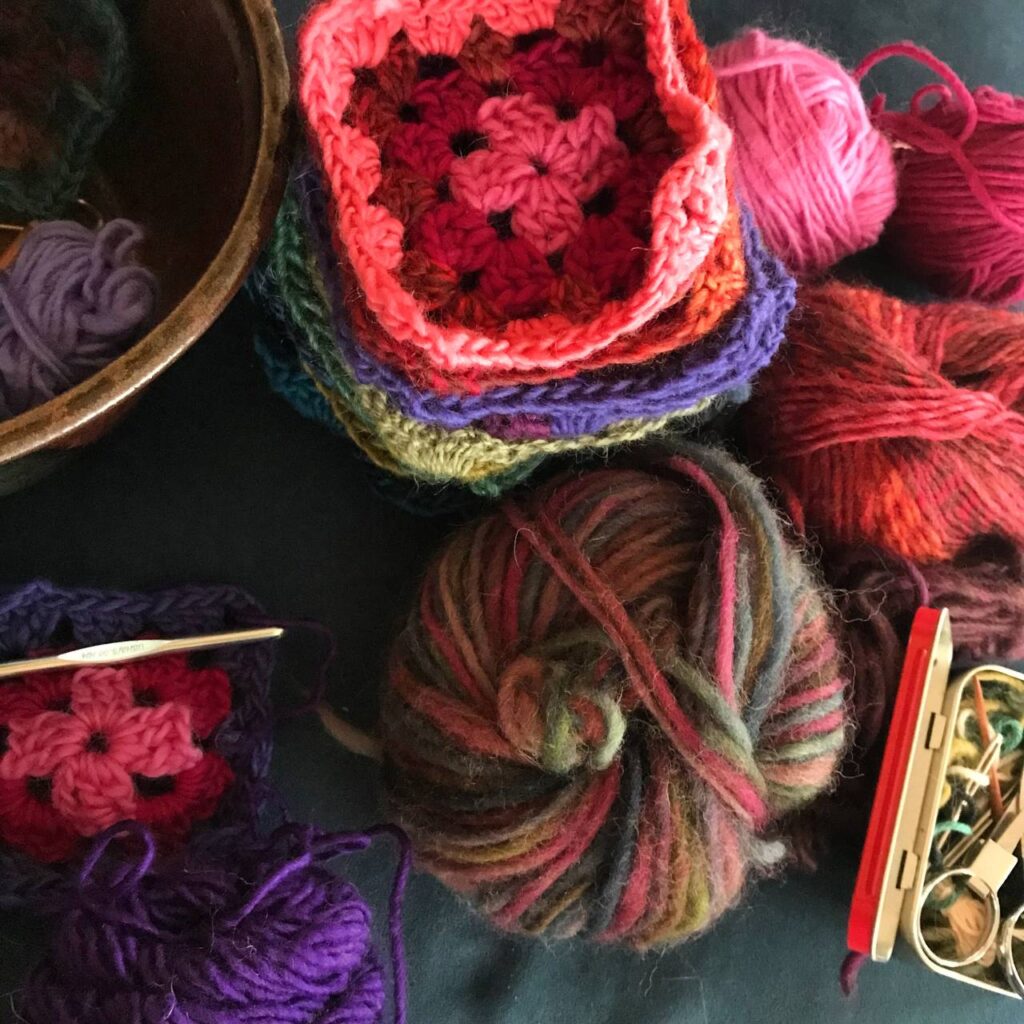
So what’s going on when things still feel the same, like we’re thrown right back to the beginning?
The Lord is saying, Stop looking at the branches and the dirt, Love. Look at Me. Eyes on Me.
I am the vine, you are the branches; the one who remains in Me, and I in him bears much fruit, for apart from Me you can do nothing.
– John 15:5
So many times I have looked in the wrong direction and put my identity and value in outcomes and output, rather than remembering that I am a vessel the Spirit flows through. When I look toward where I expect fruit to be, I kink the flow. But when I look at Him, I am a conduit He surges through, irrigating infinite gardens yet unseen.
A wise friend explained it this way:
“…my heart needs to expand and firm up to carry more of God’s goodness to others…[but] He’s just pouring water through the channel and every day my heart is subtly increasing in capacity to care in ways I never imagined.”
– Katie
When we’re abiding and surrendered, here’s what the slowness really means: While we are waiting and preparing, He is preparing us. We are becoming more able, more equipped, more filled.
But you are a chosen people, a royal priesthood, a holy nation, God’s special possession, that you may declare the praises of him who called you out of darkness into his wonderful light.
— 1 Peter 1:9
Our reach is deeper and wider. We’re not just stitching in rounds, but in fractals. He is doing the work in us for expansion.
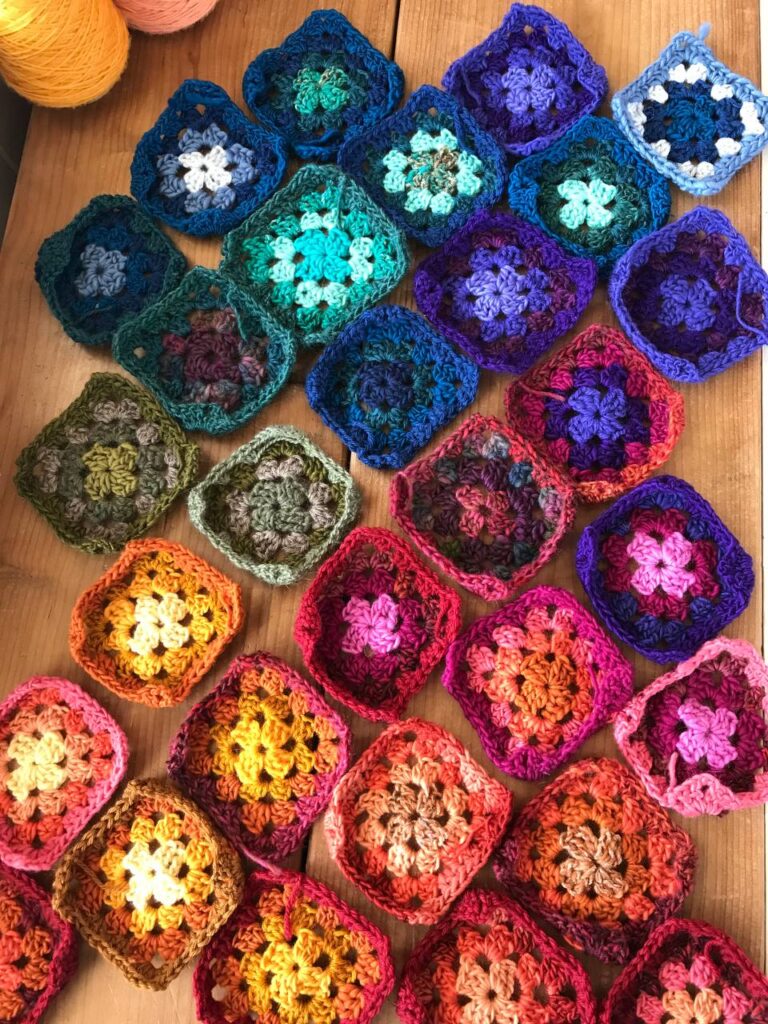
We do not make blankets, we make stitches…but the stitches make blankets, when you stick it out long enough. We look ahead to harvests, and different colors of eggs, and hutches full of quail. All these things, still unseen.
Now faith is the certainty of things hoped for, a proof of things not seen….And without faith it is impossible to please Him, for the one who comes to God must believe that He exists, and that He proves to be One who rewards those who seek Him.
– Hebrews 11:1, 6
We prepare for warmth in winter by making granny squares in spring. And in all of our preparing, He is preparing us.
We know what’s coming. The testimony of every year declares itself when spring unfurls, leaves bursting out everywhere, and we see how He’s shown up and brought victory.
Are we there yet? No, maybe not. But He hasn’t left us going around in circles on a flat plane. We are going in spirals, upward.


